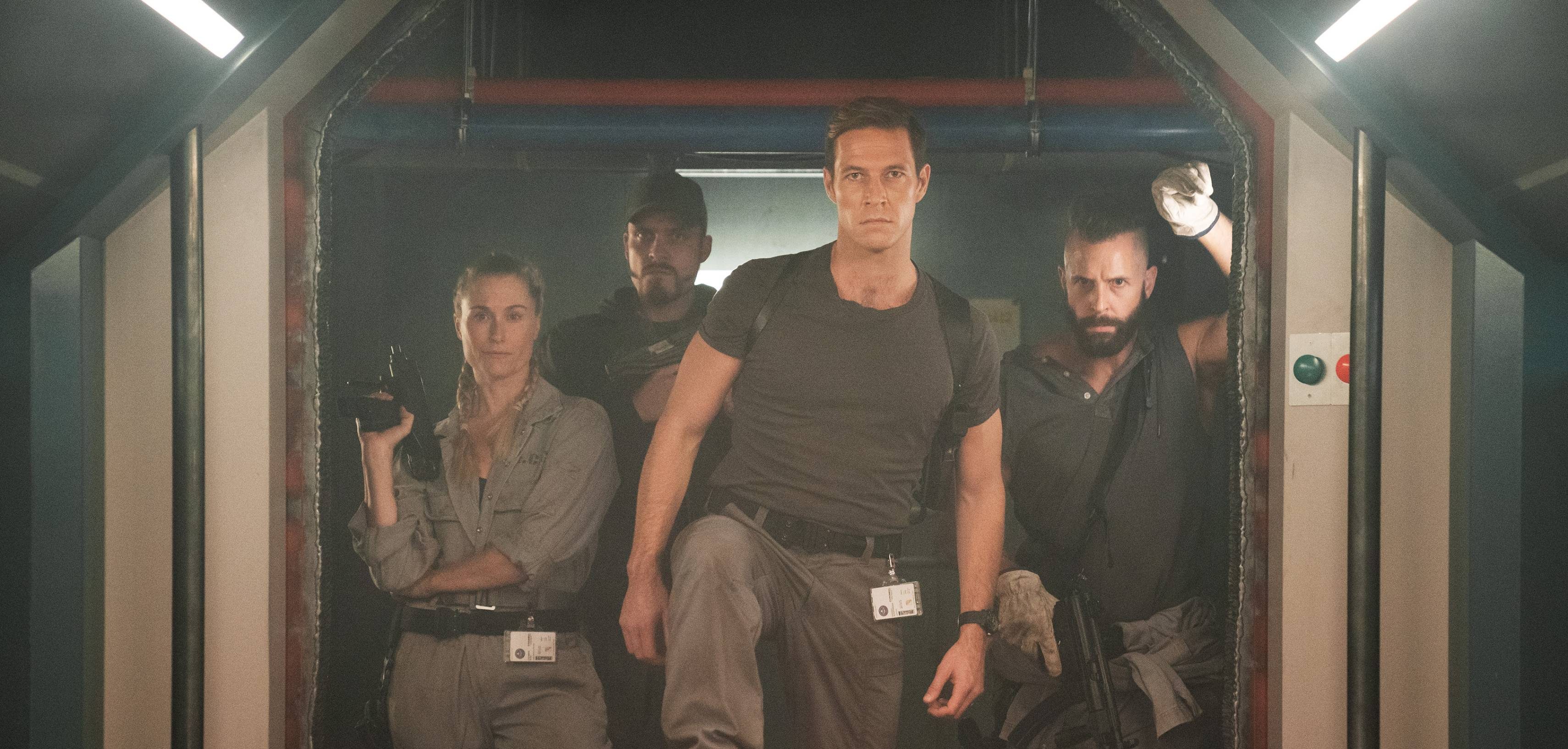Netflix’s action film ‘Interceptor’ centers around US Army captain JJ Collins, who tries to save her country from Russian missile attacks. As the officer-in-charge of SBX-1, one of the US Army missile defense complexes, she fights Alexander Kessel, the man behind the attacks. Alexander, using his resources, exerts his dominance over Collins. Even though she tries her best to find a way to defeat Alexander, she fails, until he reveals significant information concerning the attacks. Upon overhearing his conversation with an anonymous individual, Collins writes “ZSB 1996” in a note which scares him. Naturally, one must be wondering what is the meaning and significance of the same. Let us decode the same for you! SPOILERS AHEAD.
What is the Meaning and Significance of “ZSB 1996”?
When Alexander Kessel reveals his true identity to Captain Collins and her colleagues, he presents himself as the mastermind behind the impending missile attacks. He shares how much he despises the United States and wants to see the country’s destruction after serving the country as a military intelligence officer. Collins and the White House believe that Alexander’s motive behind the impending attacks is ideological, however, only until he contacts an ally to pass a message that includes “ZSB 1996.” The message not only unravels Alexander’s real motive but also offers Collins a way to defeat him.

“ZSB” in ZSB 1996 stands for Zurich Schweitz Bank, indicating that Alexander is getting paid for the missile attacks. His message to his ally is about his financial dealings concerning the operation. When Collins realizes that Alexander is nothing but a paid criminal than a terrorist or fanatic, she perceives his biggest weakness, which is nothing but his desire to survive the sinking base alive. Collins knows that as a paid criminal, Alexander would do anything to stay alive to make use of the money he would receive, contrary to a terrorist with an ideological motive, who wouldn’t mind sacrificing his life.
After knowing about ZSB, Collins sets a trap for Alexander. She gives up the control of the command center to force Alexander to command the launching of the missiles. Collins deduces that Alexander may want to fire the missiles before the base would sink to the ocean to save his own life. Since he had already arranged a submarine for his escape, she knows that if given an opportunity, Alexander will approve the launching of the missiles soon. A terrorist, with no regard for his individual life, would have waited for the base to sink to fire the missiles so that it will be impossible for Collins to fire the interceptors.

Alexander, who wants to stay alive, does the exact opposite as he commands the firing of the missiles without waiting. His premature action allows Collins to launch the interceptors before the base could sink completely to destroy the remaining fifteen missiles. If Alexander may have waited, prioritizing the fulfillment of the attacks more than his own life, the base would have sunk, making it impossible for Collins to fire the interceptors. In a way, “ZSB 1996” helps her to save the remaining fifteen United States cities from Russian missile attacks.
Read More: Interceptor Ending, Explained


You must be logged in to post a comment.